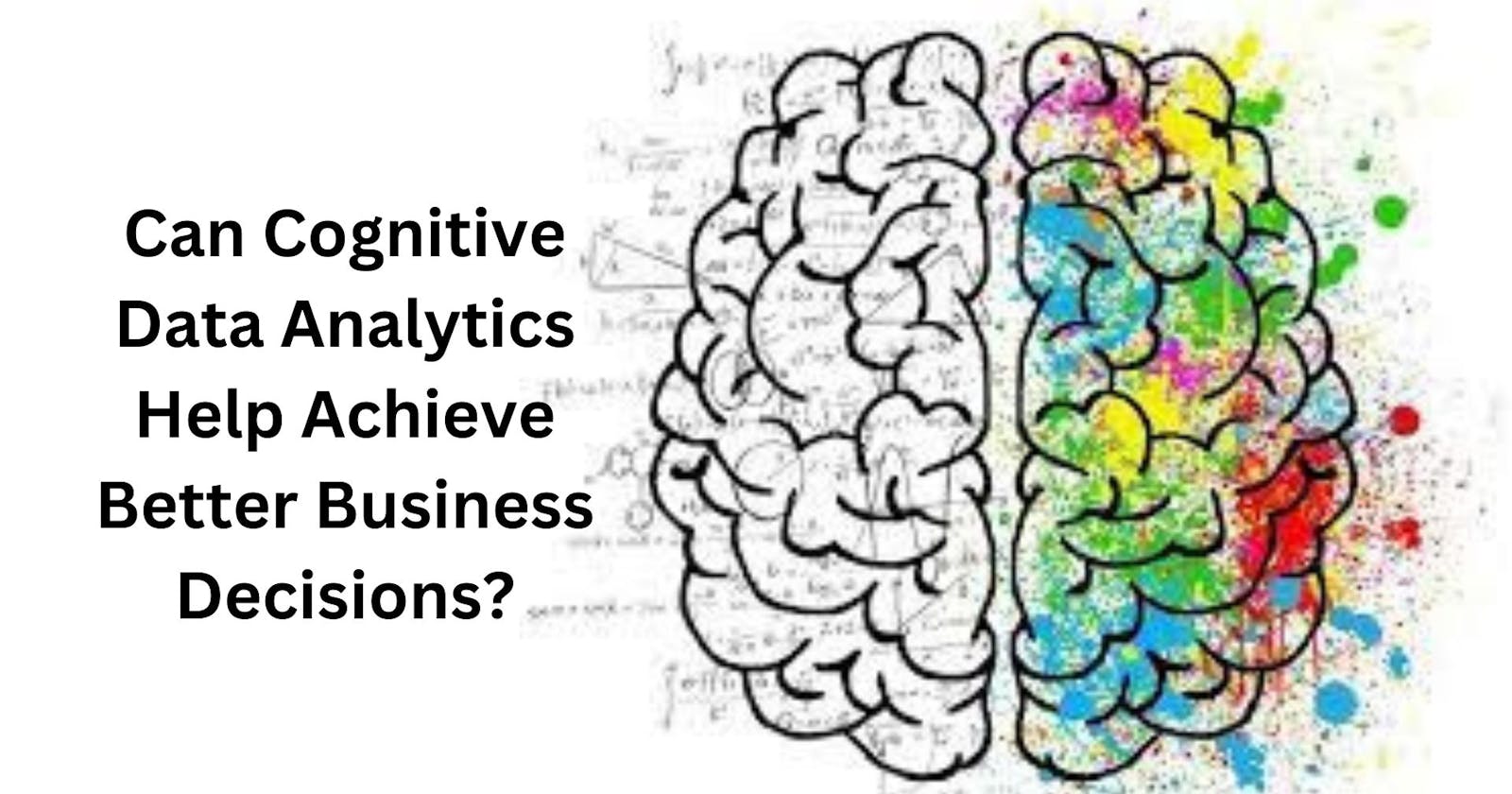Data plays a very important role in making important business decisions. It works like a fuel in machinery. The huge amount of data can be both in the form of structured as well unstructured form. This is where the role of data analytics arises. When a company hire data analysts, they inspect, clean, transform and model the data to gain valuable information from it that drives the business’s success and help in taking important business decisions.
There are various types of analytics available from predictive analysis to Prescriptive analysis and descriptive analysis and some more. With the changing times, cognitive analytics has taken center stage. It provides high performing results by combining AI, NLP, ML and deep learning technologies. Let's first understand cognitive analytics in order to better grasp how businesses can use it to perform better.
What is Cognitive Analytics?
Cognitive Analytics works like a human brain to draw patterns from the existing data. With the obtained output, businesses can make better business decisions and conclusions. Cognitive Analysis help with real-time solutions with the entire data that is available. Employing cognitive analytics, businesses can access unstructured data sources including emails, social media posts, text documents, and photos to get answers quickly and draw inferences.
Few examples of how early adopters of cognitive technology are taking advantage of the situation:
Expansion of customers:
Using cognitive data, organizations are employing a strategic algorithmic approach to sales and marketing. Cognitive analytics uses patterns and trends to forecast outcomes and make recommendations that are similar to those of a human.
By using cognitive analytics, businesses can increase the likelihood of acquiring new customers and boost revenue by fine-tuning product pricing based on purchase histories and market patterns.
Customer Engagement:
Businesses can significantly benefit from cognitive analytics by enhancing business-to-customer data analytics, which identifies and better serves customer needs and wants. Both the business and the customer gain from these analytics. It is very helpful in the ecommerce industry as well. Consumer satisfaction improves engagement and loyalty, which are essential for sustained growth.
Customer Service:
The majority of the problems associated with poor customer service, such as lengthy call wait times, issues that persist despite repeated information being given to different agents, and many others, are resolved when cognitive analytics and artificial intelligence are combined.
Risk Management:
With its ability to churn data in any format—unstructured or structured—from a variety of sources, cognitive computing offers the capacity to generate value while reducing risk and enhancing customer satisfaction, security, and compliance.
Cognitive analytics is especially helpful in the data-driven financial services industry since it can compile information from several reports, papers, and financial and medical histories, increasing compliance and lowering risks.
Increased Efficiency:
By using cognitive analytics, organizations can increase production and efficiency by gaining insightful predictions and overcoming resource constraints.
Finding the shortest road to the best results is the slogan to take the lead and stay competitive in this digital era, regardless of the industry your firm belongs to. Combining advanced analytics, parallel computing, and machine learning technologies allows for the extraction of predicted insights and the resolution of numerous queries.
Conclusion
The newest and greatest thing that will revolutionize your company with reliable and flexible solutions is cognitive analytics. Are you thinking of leveraging cognitive analysis for your industry? Get in touch with a Data Analytics Company to enroll for the services.
